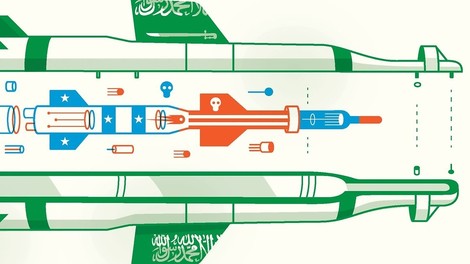Your podcast discovery platform
Curious minds select the most fascinating podcasts from around the world. Discover hand-piqd audio recommendations on your favorite topics.

piqer for: Globalization and politics Global finds
I am an Australian freelance journalist focussing on conflicts, politics, and warzones around the world. I have been working as a journalist for over 5 years, having reported from Australia, Germany, China, Egypt, Palestine, and Ukraine. I am especially interested in the way that new technologies are being used in conflict zones in unexpected and often disturbing ways. During my time working as a journalist, I also co-founded open-source war reporting site Conflict News.
How The U.S. Is Making The War In Yemen Worse
Tens of thousands dead, 7 million starving, over a million infected with cholera, a nation torn between at least 3 warring parties, and an international bombing campaign once again heating up. Welcome to Yemen in 2018, in what is widely regarded the worst humanitarian crisis that currently exists on Planet Earth.
The war is now in its third year, and the country has suffered an almost complete systematic collapse. There are no medicines, no food, no water and no hope. The only thing that you can apparently easily acquire are weapons, and even they won’t defend you from the Arab Coalition’s endless bombing campaign, which appears to have no strategic goal in mind other than to hurt those parts of Yemen that are controlled by its enemies.
What’s worse, rather than working to try and reduce the impact of the war, and ensure that it comes to a swift end, Western countries – especially the United States – are doing the exact opposite. Through arms sales as well as technical and intelligence support, the U.S. is seen as the primary backer of one side of this conflict. With a seemingly callous disregard for the lives of civilians, it would seem they are simply not willing to abandon their authoritarian Saudi allies and their seemingly blank cheque for American weapons.
Nicholas Niarchos’ long read for the New Yorker takes a deep dive into the modern history of Yemen, and how the war got to where it is now. Throughout this, he interplays the lives of Yemenis who are just trying to survive, with the machinations of international players who appear to simply not care about the tragedy they are complicit in. Depressingly, it forces the reader to consider that the crisis in Yemen might simply be too unimportant for anyone with real power to care.
Stay up to date – with a newsletter from your channel on Globalization and politics.
